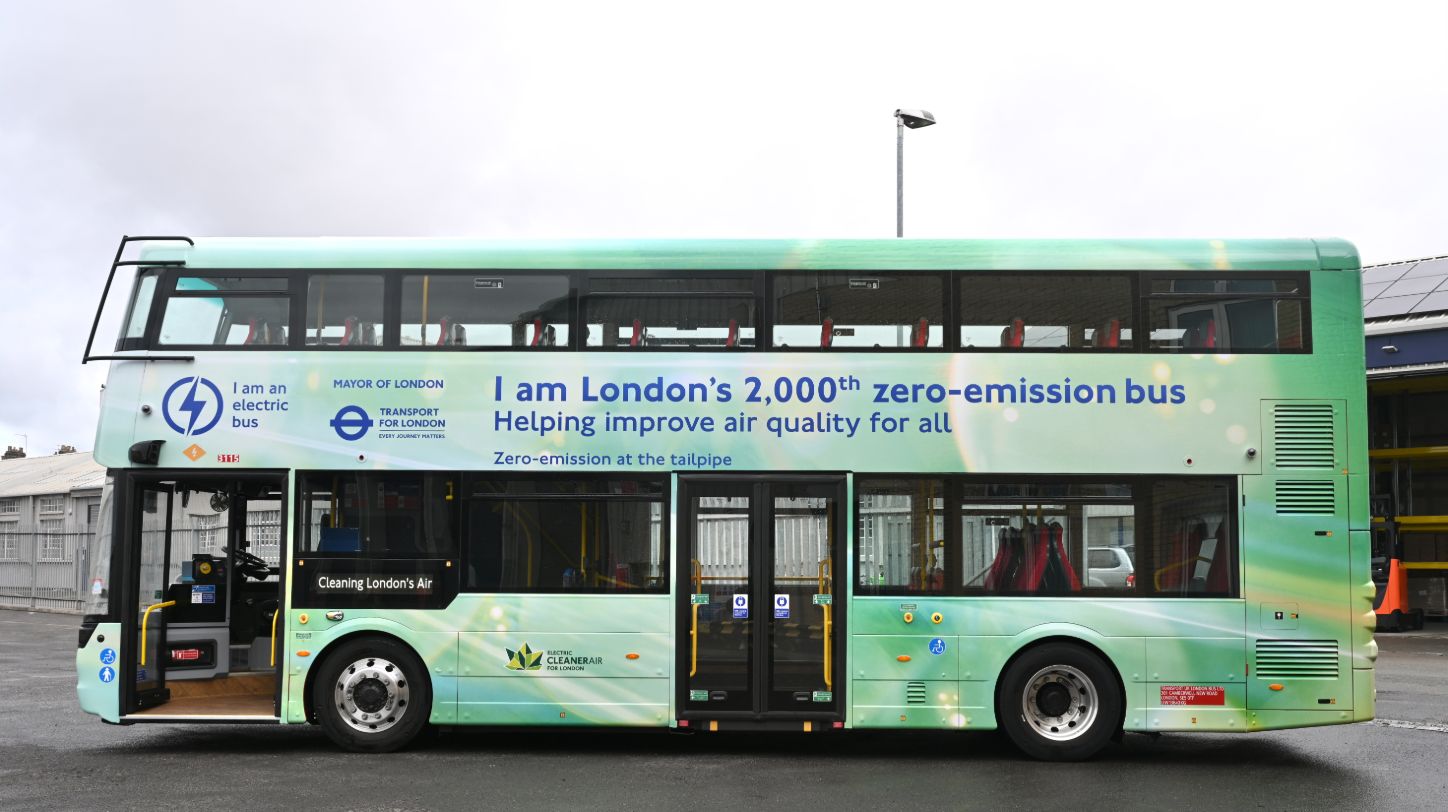London Leads the Way: Milestone of 2,000 Zero-Emission Buses Achieved
Key Ideas
- London surpasses 2,000 zero-emission buses, aiming for a fully decarbonised bus fleet by 2030, leading Western Europe in sustainable public transport.
- Transition to zero-emission buses aligns with TfL's broader goals to address air pollution and climate emergency, reducing carbon emissions by 5 million tonnes over the next two decades.
- Procurement of electric and hydrogen-powered buses supports around 3,000 green jobs in the UK manufacturing sector, enhancing production capacity and supply chain employment.
- London's zero-emission strategy includes advanced safety features, service enhancements, and innovative charging technologies, promoting accessibility, speed, and operational efficiency.
London has achieved a significant milestone by surpassing 2,000 zero-emission buses in active service, positioning itself as a leader in sustainable public transport. This achievement marks a crucial step in Transport for London's (TfL) goal to transition to a fully decarbonised bus fleet by 2030, outpacing major European cities like Paris, Berlin, and Madrid. With over 20% of London's iconic red buses now operating as zero-emission vehicles, the city boasts the largest zero-emission bus fleet in Western Europe.
The shift to zero-emission buses is part of a broader initiative to combat air pollution and the climate crisis in London. It is estimated that this transition will reduce carbon emissions by approximately five million tonnes over the next two decades. Additionally, the procurement of battery-electric and hydrogen-powered buses has not only supported the creation of around 3,000 green jobs in the UK, particularly in areas like Ballymena, Falkirk, and Scarborough but also enhanced manufacturing capabilities and supply chain employment.
In alignment with TfL's Bus Action Plan and Bus Safety Strategy, London ensures that all new buses meet zero-emission standards, contributing to the Ultra Low Emission Zone (ULEZ) regulations. The electric buses incorporate advanced safety features and service enhancements, including new bus lanes, improved interchange points, and upgraded passenger information systems for increased operational efficiency. Moreover, London operates 20 hydrogen fuel cell buses alongside innovative charging technologies like pantograph systems.
The positive sentiment surrounding London's zero-emission bus fleet is echoed by various stakeholders, including public officials and industry experts, emphasizing the environmental and economic benefits of this transition. The commitment to decarbonisation of public transport aligns with global environmental goals, positioning London as a pioneering city in sustainable urban development and transportation.
